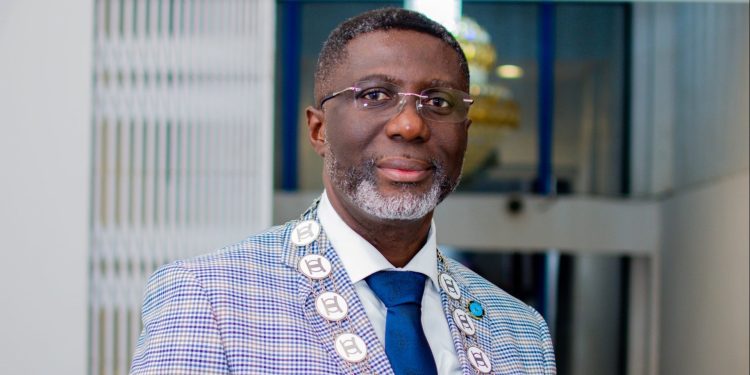The KNUST College of Engineering (CoE) held its intensive Summer School themed “Leveraging AI for Quality Engineering Education” as part of the ongoing 11th KNUST Summer School on AI in Education, the event, hosted at the Kumapley Auditorium, brought together lecturers and staff of the College to explore how artificial intelligence can redefine teaching, learning, and research within engineering education.
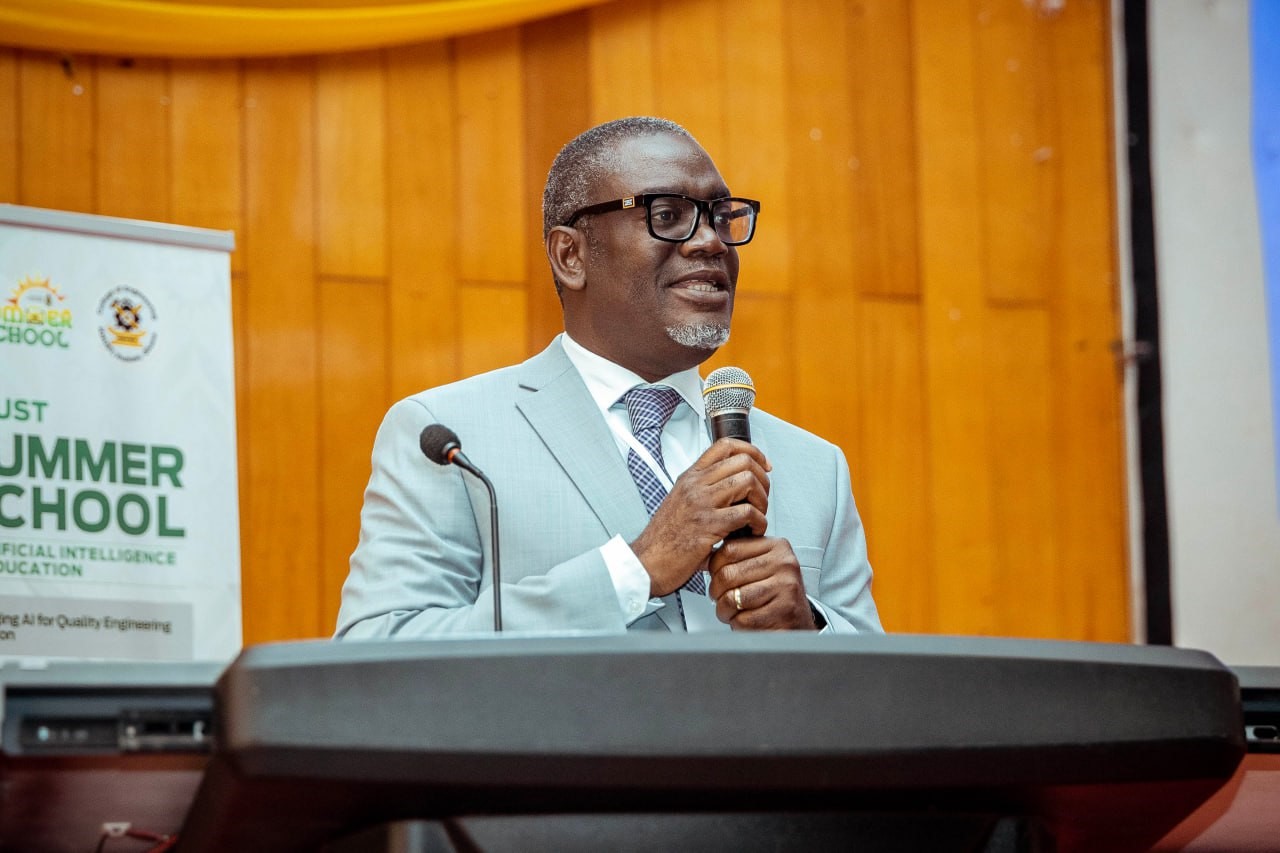
Prof. Kwabena Nyarko Biritwum, Provost of the KNUST College of Engineering, emphasised the need for academia to adapt deliberately to the rapid evolution of AI technologies in both education and industry. He reminded participants that as educators, they play a central role in determining how AI is integrated into the classroom, research, and professional practice.
“As a college, we must ask ourselves what we should do with AI and how we can adapt these tools to lift our unique concepts and enhance productivity,” he said. Prof. Biritwum encouraged faculty members to use the Summer School as a platform to experiment, learn, and innovate with AI, while preparing students to graduate not only as competent users of technology but as critical thinkers and ethical innovators. His message set a forward-looking tone for the day, calling for readiness, responsibility, and creativity in engineering education.
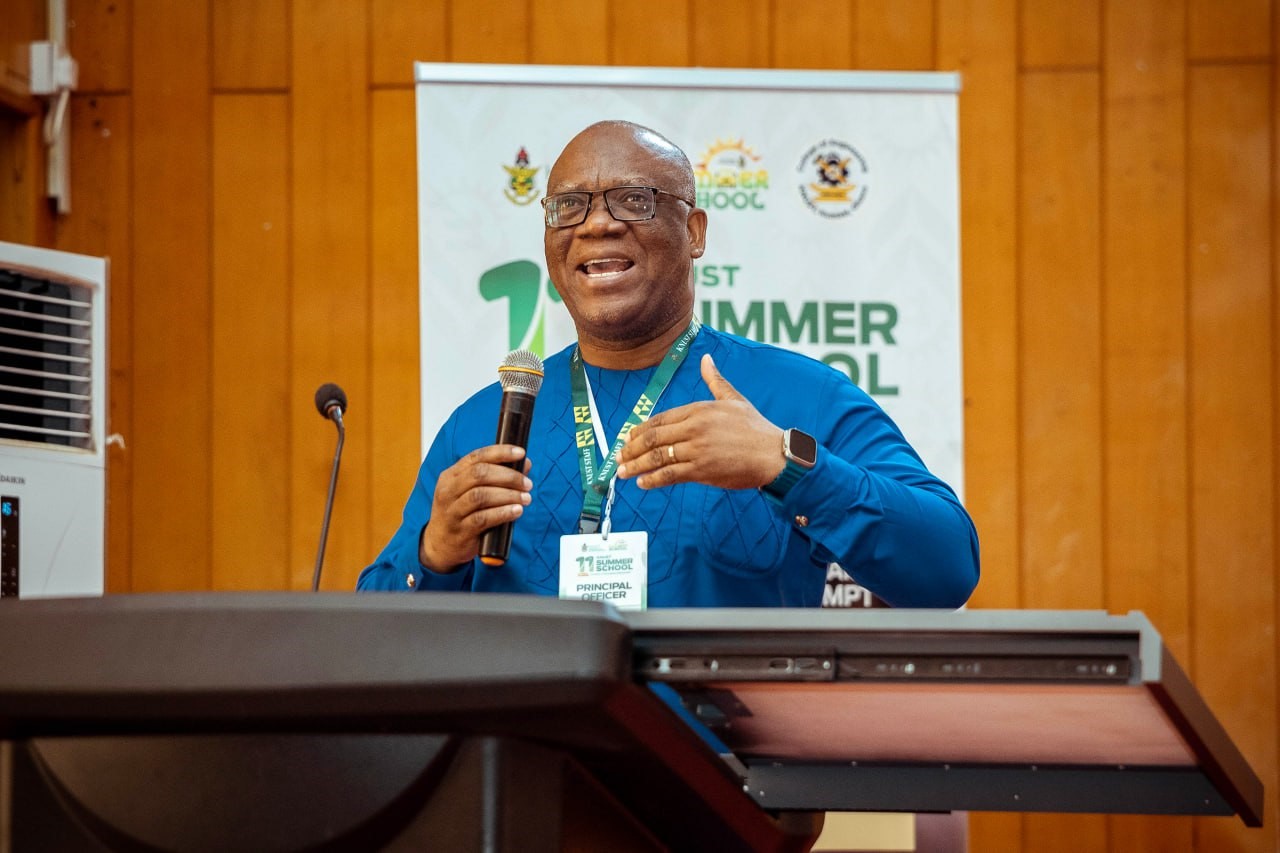
Prof. Jerry John Kponyo, Principal Investigator and Scientific Director of the Responsible AI Lab (RAIL), speaking on “Responsible AI: Opportunities and Challenges for Modern Engineering Education,” noted that artificial intelligence is transforming every field of human activity, but its potential must be guided by principles of ethics and accountability.
He stressed that engineers who design and deploy tomorrow’s AI systems carry a unique responsibility to ensure those systems are transparent, fair, and aligned with human values. Responsible AI, he explained, is people-centred technology that enhances human life rather than replacing it. He outlined key principles, including fairness, reliability, privacy, transparency, sustainability, and accountability. Each of these, he said, forms the backbone of responsible AI practice and must be integrated into engineering education.
Drawing from the RAIL FACETS Framework, Prof. Kponyo explained how these principles can guide curriculum design, research, and professional development. He called for interdisciplinary collaboration, urging engineers to work with social scientists and other professionals to build AI systems that advance social well-being and sustainability. Responsible AI, he concluded, is not optional but foundational to the future of engineering. “Education is the foundation,” he said, “and engineers are the custodians of the future.”
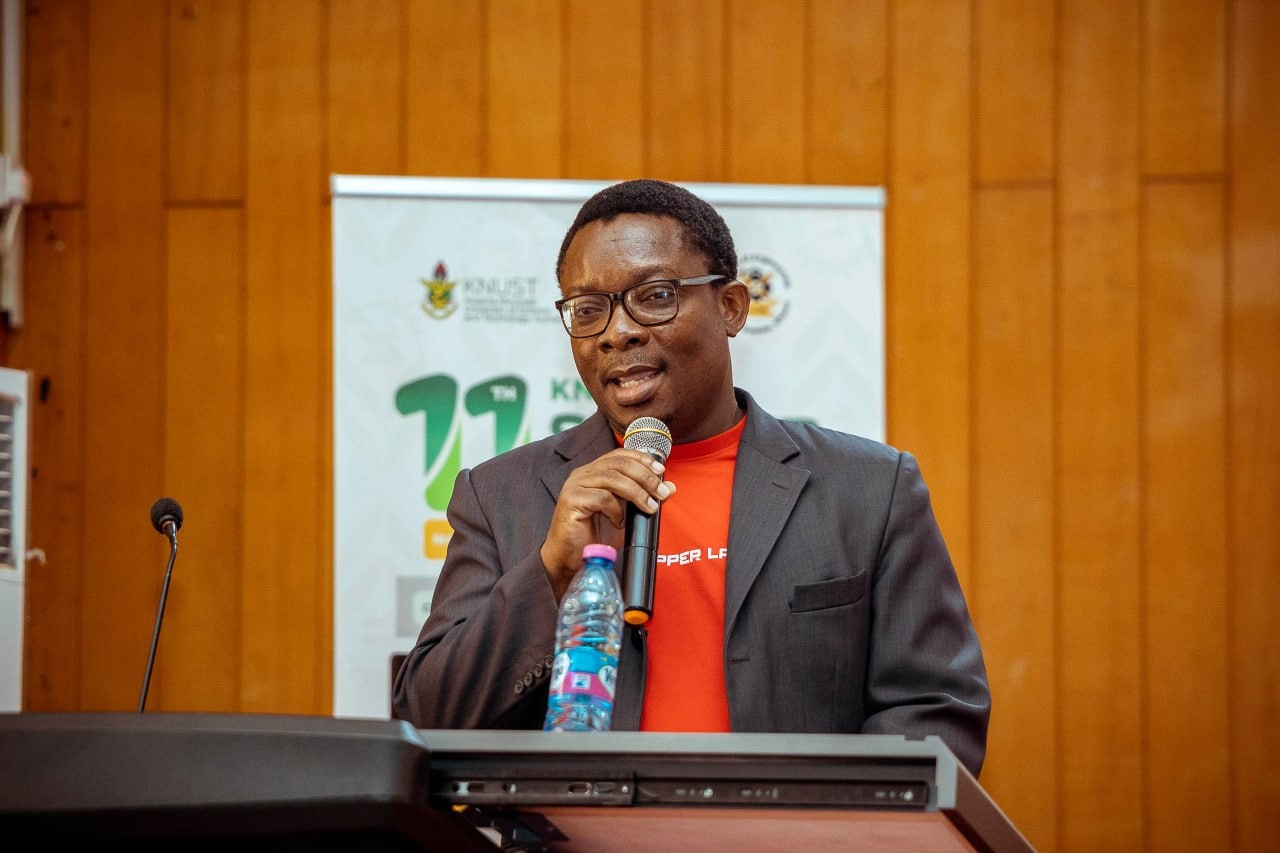
Dr. Andrew Selasi Agbemenu, Deputy Scientific Director of the DIPPER Lab, focused on “Engineering AI Fluency — Best Practices for LLM Integration in Engineering Workflows.” Dr. Agbemenu introduced participants to advanced AI systems such as ChatGPT, Claude, and Gemini, explaining that fluency in AI goes beyond usage—it requires understanding how to communicate effectively with these intelligent systems.
He presented an AI Fluency Framework built around automation, augmentation, and agency, showing how AI can be used to support documentation, research, ideation, and project management in engineering. He also demonstrated a practical prompting structure known as the CLEAR framework, which involves defining context, length, examples, audience, and role when crafting AI prompts. According to him, clarity in communication with AI models determines the quality of the output. “Using clear prompting frameworks leads to professional excellence,” he said. “The clearer your input, the better your output.”

During an engaging question-and-answer session, participants raised questions about how to prepare students for AI-integrated learning and how faculty could adapt their teaching methods to the new tools. Dr. Agbemenu observed that students are already ahead in experimenting with AI and that lecturers must learn to catch up and use it to augment their professional work. Prof. Kponyo added that readiness requires both infrastructure and a collective mindset, emphasising that the college must work together to ensure a responsible transition into AI-powered education.
The discussion concluded with a shared vision to develop a College of Engineering-specific AI model through collaboration between RAIL, DIPPER Lab and the other research centres.
The proposed model would embody the college’s values, promote ethical use of AI, and address local educational needs.
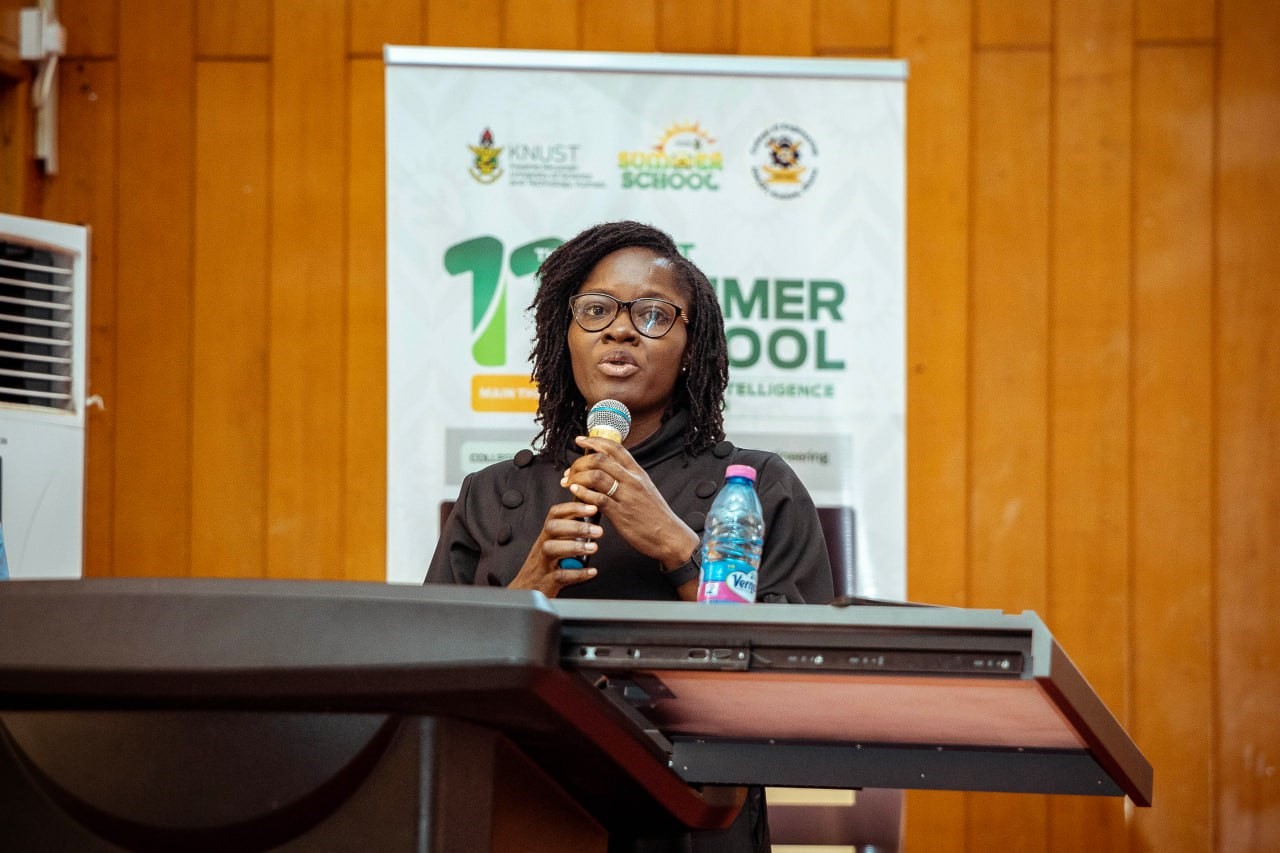
The day also featured a highly interactive hands-on session where participants explored a range of AI tools that can enhance teaching, training, and assessment in engineering education. Dr Theresa-Samuelle Ajaidoo and Dr James Okae, both from the Department of Computer Engineering, demonstrated how generative AI tools such as ChatGPT, Copilot, and Gemini can be used to create lesson plans, quizzes, lecture notes, and case studies. Participants worked on developing a ten-week undergraduate course outline using AI prompts, after which they reviewed and refined the AI-generated outputs for relevance and accuracy.
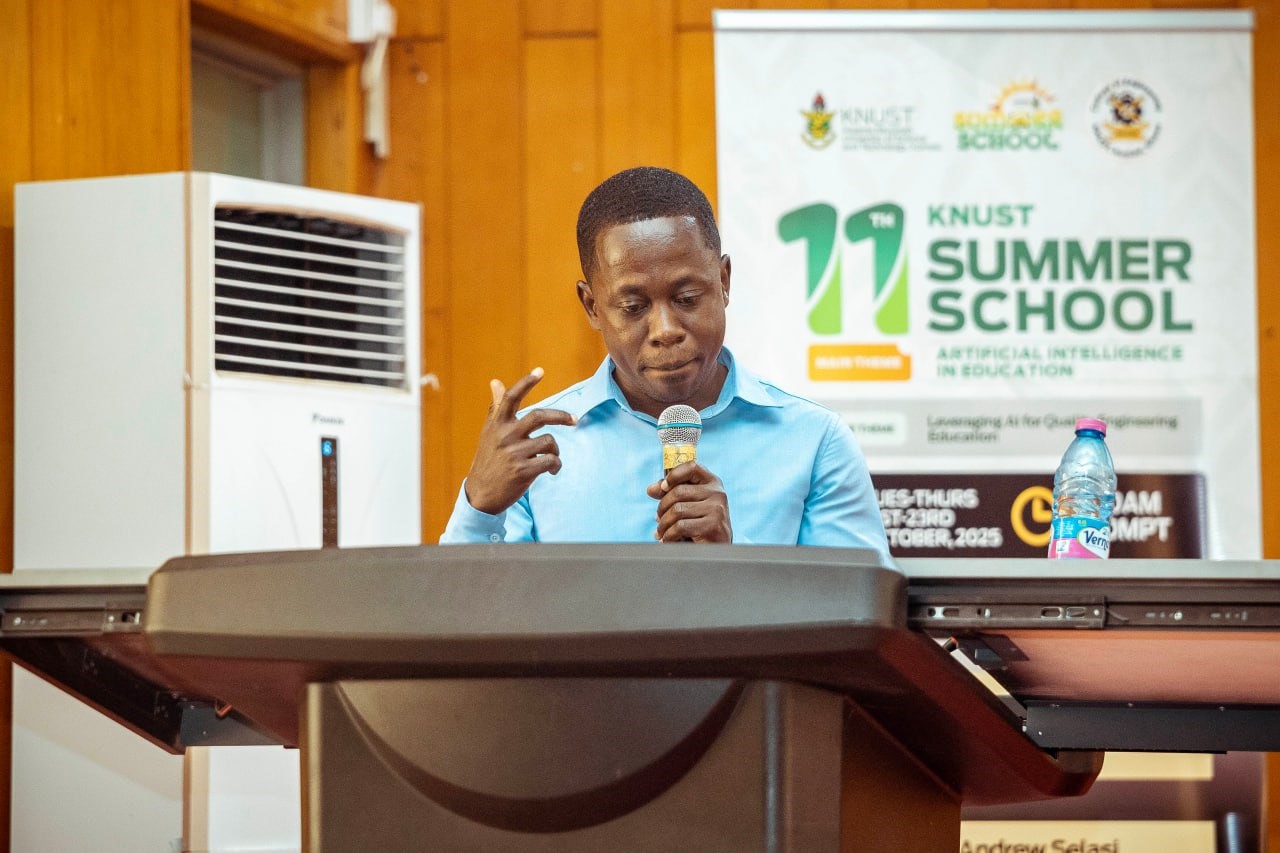
They also experimented with virtual laboratory platforms such as Labster and MATLAB Grader, which allow students to conduct simulated engineering experiments in safe, interactive online environments. The use of automated grading systems like Gradescope and Turnitin AI was demonstrated as a way to streamline assessment processes while maintaining academic integrity. In addition, participants explored professional learning platforms such as LinkedIn Learning and Udemy, which provide opportunities for continuous AI literacy and skills development.
Throughout the session, participants tested tools like Gamma AI for designing presentation slides and Notebook LM for generating and evaluating exam questions. Discussions touched on the limitations of AI-generated content, the risks of inaccuracies and “hallucinated” data, and the costs associated with implementation. Despite these challenges, the mood in the room was optimistic. Participants agreed that AI, when used responsibly, can make teaching more efficient, interactive, and student-centred.
By the end of the session, participants had not only deepened their understanding of responsible AI but had also gained hands-on experience in applying it to teaching and research.








